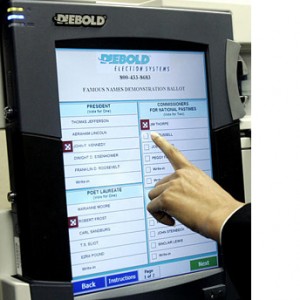SC Progressive Network Director Brett Bursey filed a complaint in federal court on June 17 to require the state to preserve voting records in federal elections. Since then, the Network has worked to arrange an audit of the entire June 8 South Carolina primary vote.
As you know, the results of two federal elections — US Senate and Congressional District 1 — were, in the words of numerous well-credentialed experts, “anomalous.”
The Verified Voting Foundation released a statement on the South Carolina primary results that concluded, “Whether specific reports of irregularities in this election are confirmed, the most important fact about South Carolina’s voting system is that most ballots cannot be effectively audited or recounted. Serious concerns about the integrity of the primary (and of other elections conducted using the same technology) are inevitable, and legitimate.” For the full statement go to Verified Voting.org.
Since a “recount” of the voting machine tallies we use in South Carolina can only produce the same number, over and over, an audit of the internal memories on the machines is the only way to discover anomalies — and even this won’t reveal the intent of the voter beyond what is recorded by the software.
South Carolina is one of only eight states that uses paper-less, touch-screen devices that are not routinely audited. Thirty-four states now require a “voter verified paper ballot” that can be referred to in the event of a recount or audit.
“We are not questioning the results of the June 8 primary,” said Bursey. “We are questioning whether the machines we use can be audited to insure that the results reflect the voters’ true choices, and if the preserved records satisfy federal requirements.”
Yesterday, we gave up on trying to get the SC Election Commission to agree to a third-party audit of the entire system. The executive director of the SCEC, as well as the board chair, both had roles in the purchase of these machines in 2004. They maintain that the system works fine and no audit is necessary.
We are now focusing on the federal complaint we have filed that questions whether the intent of the federal records preservation statute can be met using the counties’ current systems and software. Our lawsuit is the only thing standing between us and another election in November with unverifiable results.
We have filed a request for all the compact discs that each county was supposed to have used to record the flash memory of each voting machine.
The state Election Commission does not know if all counties followed this procedure, or whether this procedure adequately preserved the records, or whether what is preserved is sufficient to reliably determine the voters’ intent. The state Election Commission is arguing that it is not its job to keep these records, nor to gather them for us.
We need immediate financial help to make our case. We need to raise $3,000 to cover filing fees and expert assistance. If you can help, please do.
We hope that this case, and the growing public awareness of the inherent shortcomings of our voting system, will lead to a voter-verifiable, recountable, paper record of the most critical part of our democracy — our vote.
Please make a secure donation now and indicate in the gift information “verified voting.”
Thank you for your support.




